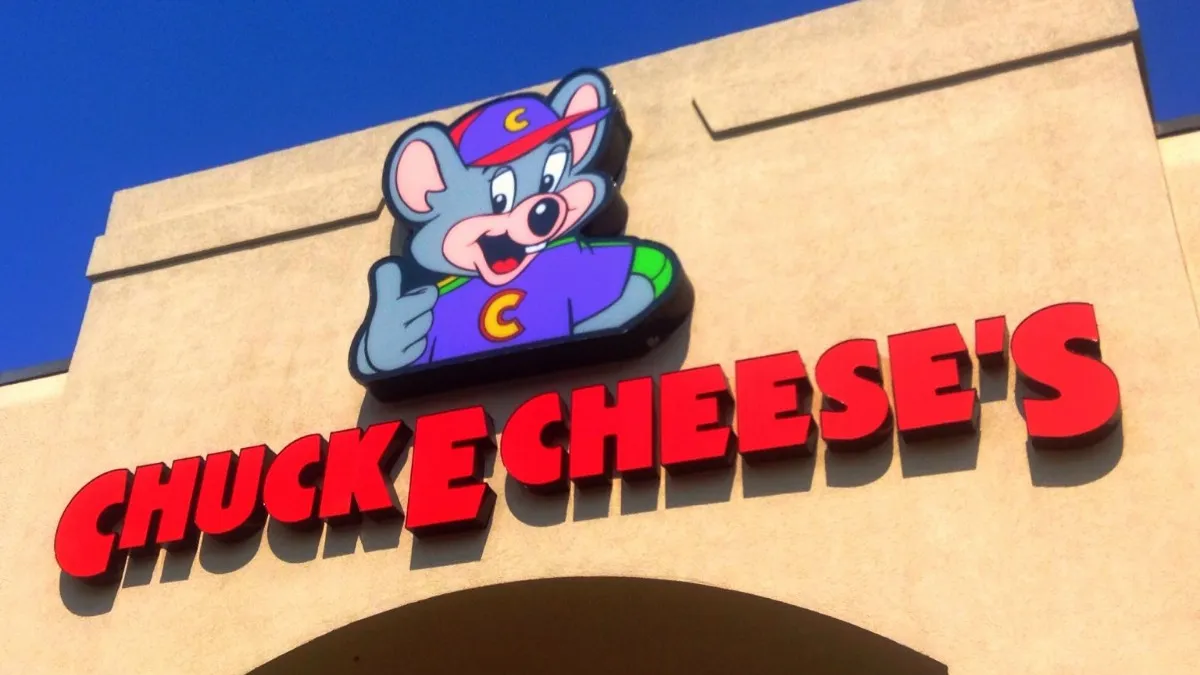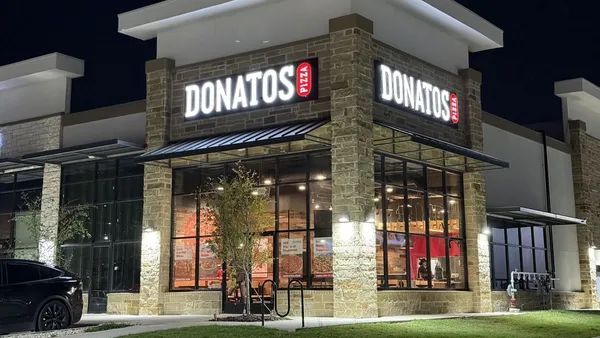UPDATE: Jan. 4, 2021: CEC Entertainment announced on Dec. 30 that the company emerged from Chapter 11 bankruptcy protection and reduced debt obligations by about $705 million. This marks the completion of the company's financial restructuring process, and CEC has over $100 million of liquidity to fund operations and growth plans. The company also has a new seven-member board of directors.
Dive Brief:
- CEC Entertainment, parent company of Chuck E. Cheese, announced Tuesday that it has entered a plan support agreement (PSA) with creditors holding more than 66-2/3% in principal amount of outstanding obligations under the company's prepetition first lien credit agreement.
- CEC landed a commitment for $200 million in debtor-in-possession financing from first lien lenders to bolster business operations and reorganization costs as it "explores a value-maximizing transaction and seeks to emerge from Chapter 11," according to the press release.
- The restaurant company and its creditors that are involved in the PSA have agreed to the following terms of financial restructuring, including: a Chapter 11 plan premised on a sale of CEC's reorganized equity or substantially all of its assets; a credit bid for a sale of substantially all of CEC's assets by CEC's first lien lenders; or a debt-for-equity exchange. CEC will continue to solicit interest from third parties in a potential sale as part of the PSA.
Dive Insight:
This $200 million in financing marks the first time that CEC Entertainment has secured financial support since declaring Chapter 11 bankruptcy in June, a glimmer of hope for an eatertainment chain that has been pummeled by the economic pressures of the novel coronavirus pandemic.
The company has also reopened 316 corporate-owned Chuck E. Cheese and Peter Piper Pizza units as of Sept. 4, with plans to open more locations and bring more employees back to work, according to the press release. This is an improvement from its state of operations in June, when only 266 of CEC's stores were open. That same month, CEC filed a motion with the U.S. Bankruptcy Court for the Southern District of Texas to let go of 45 leases at closed locations in 24 states. Twenty-seven were closed due to COVID-19, and 35 of the locations were Chuck E. Cheese stores.
This new cash infusion could help the company optimize its operations — which have been especially challenged at Chuck E. Cheese despite investments in in-home party packages and mobile app games to drive interest amid social distancing restrictions — as it looks for sale opportunities.
"We are pleased to have reached agreement with a substantial majority of our first lien lenders on a comprehensive balance sheet restructuring that will support our re-opening and longer-term strategic plans," David McKillips, CEC's CEO, said in the press release. "This agreement and financing demonstrate our creditors' confidence in our go-forward business plan and will enable CEC to complete this financial restructuring process in a timely manner."
Earlier this year, a few potential buyers reportedly expressed interest in CEC, but nothing has come of these inquiries so far. CEC is also far from the only restaurant group to declare bankruptcy since the start of the pandemic. Garden Fresh Restaurants, parent company of popular buffet chain Souplantation, shuttered completely after filing Chapter 7 bankruptcy in May. Le Pain Quotidien U.S., Pizza Hut's largest franchisee, Garbanzo Mediterranean Grill and California Pizza Kitchen have all recent filed Chapter 11 bankruptcy. As the pandemic and dining room closures in many states both stretch on, analysts fear as many as two-third of publicly traded restaurants face bankruptcy risk.














